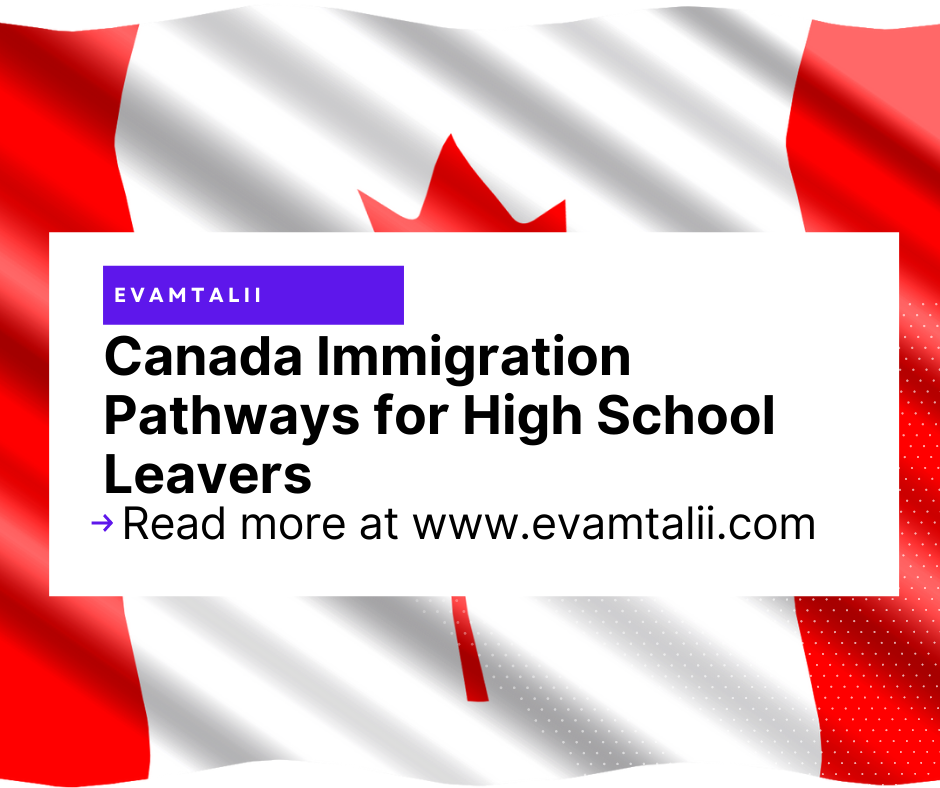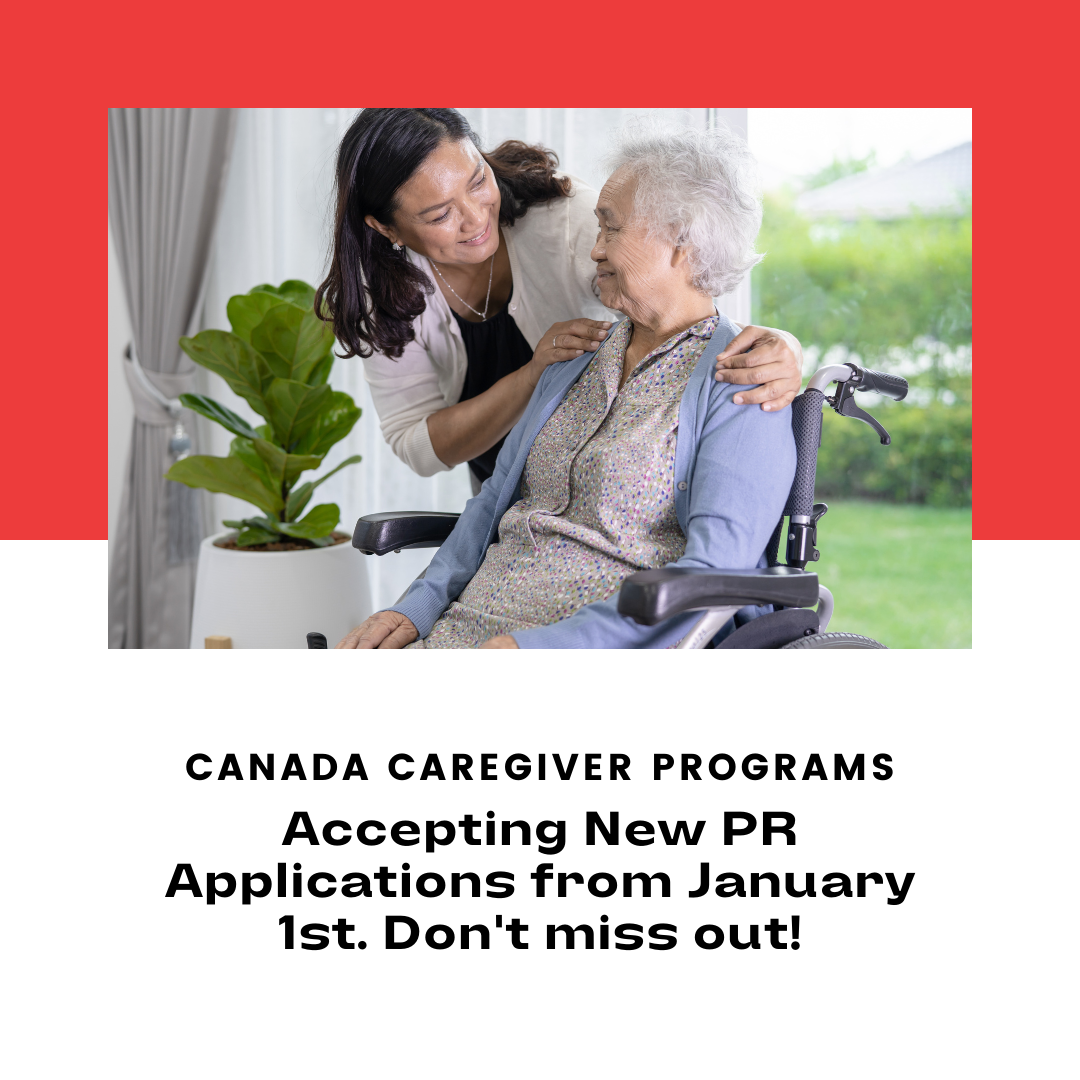I show you various options to immigrate to Canada if you are working in an NOC C or NOC D occupation and also how to get Canada PR without degree using work experience in a job that is classified under NOC C or NOC D.
Even though in the latter part of 2022, Canada will switch to the Training, Education, Experience and Responsibilities (TEER) system, it currently uses the National Occupational Classification (NOC) system 0 to D to classify jobs (occupations).
Jobs are grouped based on the type of:
- job duties
- work a person does
For Canada immigration purposes, the main job groups are:
- Skill Level C: intermediate jobs that generally require only high school and/or job-specific training, such as:
- industrial butchers
- long-haul truck drivers
- food and beverage servers
- Skill Level D: labour jobs that generally only call for on-the-job training, such as:
- fruit pickers
- cleaning staff
- oil field workers
- Skill Type 0 (zero): management jobs, such as:
- restaurant managers
- mine managers
- shore captains (fishing)
- Skill Level A: professional jobs that usually call for a degree from a university, such as:
- doctors
- dentists
- architects
- Skill Level B: technical jobs and skilled trades that usually call for a college diploma or training as an apprentice, such as:
- chefs
- plumbers
- electricians
Although Express Entry immigration program system is the main immigration pathway to Canada for economic-class immigrants, it is available only for workers in NOC 0, A, and B occupations.
Hence the frequently asked question, are there any immigration programs that primarily target occupations classified under NOC C and NOC D?
Hence this post.
So, without much further ado, here are some of the immigration pathways to Canada permanent residence for people with job offers and work experience in NOC C and NOC D.
What's Covered in This Article
Provincial Nominee Program
The Provincial Nominee Program (PNP) was created to allow foreign workers who:
- have the skills, education and work experience to contribute to the economy of a specific province or territory, and
- want to live in that specific province or territory,
to become permanent residents of Canada.
Each province and territory has its own requirements and “streams” (immigration programs that target certain groups).
Below are PNPs with immigration pathways specifically targeting foreignors in NOC C and D occupations.
- BC Skills Immigration Entry Level and Semi-Skilled Category
- Alberta Opportunity Stream
- Saskatchewan Experience Category
- Saskatchewan Hard-to-Fill Skills Pilot
- Manitoba Skilled Worker Stream
- Ontario Employer Job Offer: In-Demand Skills
- Nova Scotia Occupations in Demand
- New Brunswick Skilled Worker with Employer Support
- Prince Edward Island Labour Impact Category Critical Worker Stream
- Newfoundland and Labrador Skilled Worker Category
- Yukon Critical Impact Worker
- Northwest Territories Employer-Driven Entry Level/Semi-Skilled Occupations
Quebec’s Permanent Immigration Pilot Program for Workers in Food Processing
Quebec’s Permanent Immigration Pilot Program for Workers in Food Processing targets temporary foreign workers in Québec’s food processing sector who are interested in settling in Québec permanently.
This pilot program started on March 24, 2021, and will close on January 1, 2026 or until the maximum number of applications have been reached.
Quebec’s Permanent Immigration Pilot Program for Workers in Food Processing allows for the selection of 550 workers in the food processing sector per year and their family members.
Among other requirements, you must:
- be proficient in spoken French corresponding to level 7 on the Échelle québécoise des niveaux de compétence en français des personnes immigrantes adultes (ECF).
- be at least 18 years old
- have proof of funds for at least your first three months in the province
- have work experience in Québec in an eligible job and sector
- hold an eligible job in an eligible sector in Québec at the time of submission of your application. Your job offer, or work experience, must be in one of the following occupations:
-
- NOC 6732 – Specialized cleaner
- NOC 8431 – General farm worker, but only in the position of chicken catcher
- NOC 9461 – Process control and machine operator, food and beverage processing
- NOC 9462 – Industrial butcher and meat cutter, poultry preparer and related worker
- NOC 9463 – Fish and seafood plant worker
- NOC 9617 – Labourer in food and beverage processing
- NOC 9618 – Labourer in fish and seafood
Intermediate-skilled workers – Atlantic Immigration Pilot Program
Formerly knows as the Atlantic Immigration Pilot, the Atlantic Immigration Program (AIP) is a federal immigration program that was launched in 2017 to help employers in the Atlantic Canada the four Atlantic Provinces: Newfoundland and Labrador, Prince Edward Island, Nova Scotia, and New Brunswick; hire foreign skilled workers who want to immigrate to Atlantic Canada and international graduates who want to stay in Atlantic Canada after they graduate.
The Atlantic Immigration Pilot (AIP) will close in December 31, 2021, and provincial endorsements will no longer be issued.
The new permanent program i.e. Atlantic Immigration Program (AIP) will officially open on January 1, 2022 and federal government will start accepting applications on March 6, 2022.
The Atlantic Intermediate-Skilled Program specifically targets NOC C workers.
Eligibility criteria for intermediate-skilled workers – Atlantic Immigration Pilot include:
1. Work experience
In the last 3 years, you must have worked at least 1,560 hours.
Any periods of self-employment will not be included when calculating the period of qualifying work experience.
You can use your work experience to qualify for the Atlantic Intermediate-Skilled Program in 2 different ways.
Option 1
You have work experience at National Occupational Classification (NOC) skill level C.
Option 2
You have work experience as one of the following:
- as a registered nurse or registered psychiatric nurse (NOC skill level A 3012)
- as a licensed practical nurse (NOC skill level B 3233)
You also have one of the following job offers:
- a nurse’s aide, orderly or patient services associate (NOC skill level C 3413)
- a home support worker (NOC skill level C 4412)
2. Education
You must have 1 of the following:
- a Canadian secondary (high school) or post-secondary certificate, diploma or degree from a recognized institution
- a foreign degree, diploma, or certificate equal to a Canadian credential. You need an educational credential assessment (ECA) report from a recognized organization to show your credential is valid and equal to a Canadian credential. If you already have an ECA report, it must be less than 5 years old when IRCC receives your permanent resident application.
3. Language testing
You must take one of the language tests approved by IRCC.
Learn about language testing for the AIP.
If you have taken an approved test, you can send those results if they:
- are less than 2 years old
- show you meet the level the program requires
4. Proof of funds
You need to have enough money to support yourself and your family when you get to Canada. The amount you need depends on the size of your family including anyone else you support even if they aren’t immigrating with you.
Learn how much money you should have when you arrive in Canada.
If you’re already living and working in Canada with a valid work permit, you don’t need to show proof of funds.
5. Get a job offer
You must have a job offer that meets all of these requirements:
- The job offer was made using the Offer of Employment to a Foreign National [IMM 5650] (PDF, 1.55 MB) form.
- The employer has been designated as an employer taking part in the AIP by the Atlantic province where you’ll be working (New Brunswick, Newfoundland and Labrador, Nova Scotia, or Prince Edward Island). They must have a Confirmation of Designation from the province.
- The job must be full-time, meaning you’ll work at least 30 paid hours per week.
- The job must be non-seasonal. In general, this means you have consistent and regularly scheduled paid employment throughout the year.
- The job is skill type/level 0, A, B or C under the NOC.
- Your employment is permanent, that is, there is no set end date.
You must meet employment requirements for the job you are offered. You can find these requirements in the NOC. The job doesn’t need to be in the same NOC as other jobs you’ve had.
Home Child Care Provider Pilot and Home Support Worker Pilot
The Home Child-Care Provider Pilot and Home Support Worker Pilot are 2 economic pilot programs targeted to foreign national caregivers who
- have a job offer or Canadian work experience in an eligible caregiver occupation
- at least one year of Canadian post-secondary education, or the foreign equivalent
- at least two years of full-time work experience in NOC 4411 or in NOC 4412 (excluding housekeepers)
- you care for children below the age of 18 in your home or your employer’s home (for NOC 4411); or
- you must have taken care of someone who needs help from a home support worker (for NOC 4412)
- being a foster parent not counted as work experience.
- language proficiency test results in English or French with a Canadian Language Benchmark (CLB) of at least 5, and .
The eligible NOC codes are 4411 and 4412, which are both skill level C.
Agri-food Immigration Pilot
The Agri-Food Pilot was started to help address the labour needs of the Canadian agri-food sector and will run until May 2023.
To apply for permanent residence under the Agri-Food Pilot, you need to have:
- at least 1 year of full-time, non-seasonal Canadian work experience in an eligible Canadian work experience in one or more of the eligible industries and occupations
- a full-time, non-seasonal job offer from a Canadian employer in one of the eligible industries and occupations (outside of Quebec)
- to meet or exceed the English or French language proficiency of at least a CLB level 4
- to meet or exceed the educational requirements of a high school education
- to have settlement funds (if applicable)
- to maintain temporary resident status (if already in Canada)
The pilot provides a pathway to permanent residence for experienced, non-seasonal workers in specific industries and occupations.
Eligible NOC C and D occupations
Eligible jobs for each eligible industry are listed below.
For meat product manufacturing (NAICS 3116)
- NOC C 9462 – Industrial butchers
- NOC D 9617 – Food processing labourers
For greenhouse, nursery and floriculture production, including mushroom production (NAICS 1114)
- NOC C 8431 – General farm workers
- NOC D 8611 – Harvesting labourers
For animal production, excluding aquaculture (NAICS 1121, 1122, 1123, 1124 and 1129)
- NOC C 8431 – General farm workers
Application limits by eligible occupation
There are annual limits on the number of applications that will be processed for each eligible occupation.
Starting on January 1 of each year, applications will be processed on a first-come, first-served basis.
Annual limits
| Eligible occupation | Number of applications accepted per year |
|---|---|
| Farm supervisor or specialized livestock worker (NOC B 8252) | 50 |
| Industrial butcher (NOC C 9462) or retail butcher (NOC B 6331) | 1470 |
| Food processing labourer (NOC D 9617) | 730 |
| General farm worker (NOC C 8431) | 200 |
| Harvesting labourer (NOC D 8611) | 300 |
If your application is rejected because the annual limit for your occupation category has been reached, IRCC will refund your application fees.
Rural and Northern Immigration Pilot
The federal government’s Rural and Northern Immigration Pilot is a community-driven program designed to spread the benefits of economic immigration to smaller communities by creating a path to permanent residence for skilled foreign workers who want to work and live in one of the following 11 participating communities.
- North Bay, Ontario
- Sudbury, Ontario
- Timmins, Ontario
- Sault Ste. Marie, Ontario
- Thunder Bay, Ontario
- Brandon, Manitoba
- Altona/Rhineland, Manitoba
- Moose Jaw, Saskatchewan
- Claresholm, Alberta
- Vernon, British Columbia
- West Kootenay (Trail, Castlegar, Rossland, Nelson), British Columbia
In order to be considered for the RNIP, candidates must meet meet both IRCC eligibility requirements and the community-specific requirements.
Canada PR Application process through the RNIP
There are 4 steps to applying for permanent residence under the RNIP pilot.
- Check that you meet both
- Find an eligible job with an employer in one of the participating communities.
- Once you have a job offer, submit your application for recommendation to the community.
- If a community recommends you, apply for permanent residence.
Each community will also have its own
- additional eligibility requirements
- job search process
- community recommendation application process



